
Whether you’re in the market for a new scanner (you’ve realized how good it is for Signals Intelligence) or have recently bought a new Uniden scanner, you may have found yourself confused by the advertising of the Close Call feature.
What on earth does that even mean? Why would somebody want Close Call? What does it do?
We’re going to look at this very helpful scanner feature.
What is the Close Call Feature on a Scanner?
This feature allows your scanner to automatically pick up radio transmissions that are within close proximity of the scanner. This explains the “close” in close call.
There are several different settings you can enable for the Close Call feature, but they all do the exact same thing: tell you that someone nearby is broadcasting a transmission.
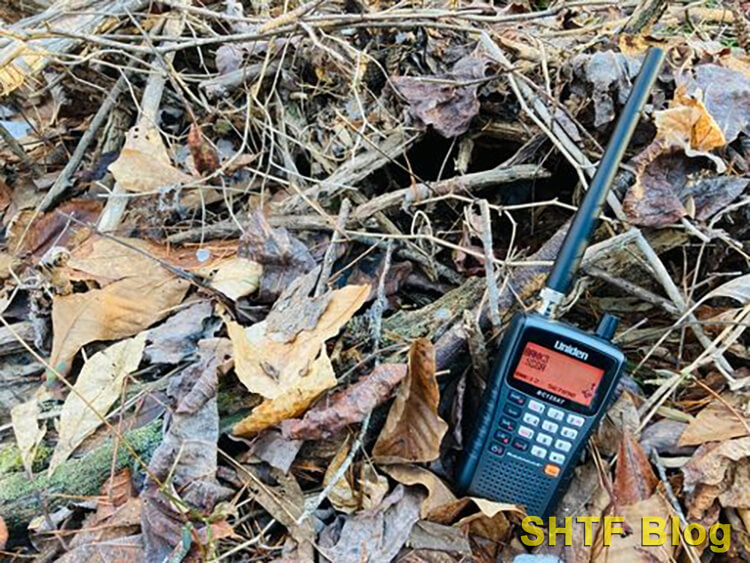
- LISTEN IN AND STAY INFORMED, this sophisticated scanner has 500 alpha-tagged channels in a convenient compact design with loads of features. Close Call RF capture technology instantly tunes to signals from nearby transmitters and the Do Not Disturb Mode prevents Close Call checks during a transmission.
- LISTEN TO OVER 40,000 FREQUENCIES, you can listen to both civilian and military bands, including Non-Digital Police, Ambulance, Fire, Weather, Marine, Aircraft, Railroad, Civil Air, Amateur radio services, and Racing events.
- SEARCH MORE EFFICIENTLY with 500 Alpha-Tagged Channels finding the channel you want to listen to is easy, with 500 channels divided into 10 storage banks. Organize your channels by department, location, area of interest, or any other way you prefer. Alpha Tagging lets you assign names to your channels, so you can keep track of who you are listening to.
- LIGHTWIEGHT PORTABLE DESIGN, take this Bearcat handheld radio scanner with you on the road, or on outings. It packs plenty of features, the orange backlight display is easy to read, even in low light conditions.
- GET STARTED LISTENING RIGHT AWAY with convenient Pre-sets for the most popular searches. Frequencies are preset in ten separate Non -Digital Police/Fire/Emergency, Ham, Marine, Railroad, Civil Air, Military Air, CB Radio, FRS/GMRS/MURS, and Racing search bands. This makes it easy to find channels that interest you.
What is the Close Call Feature Good For?
Consider the following scenarios.
Armed Mob
An armed mob is burning down your city, and you know this mob is well-organized. Part of that coordination comes from their using radios to communicate with one another. With a scanner that’s equipped with Close Call, you could pick up transmissions between members of the mob.
The very fact of hearing them via Close Call could give you all the information you need – time to bug out!
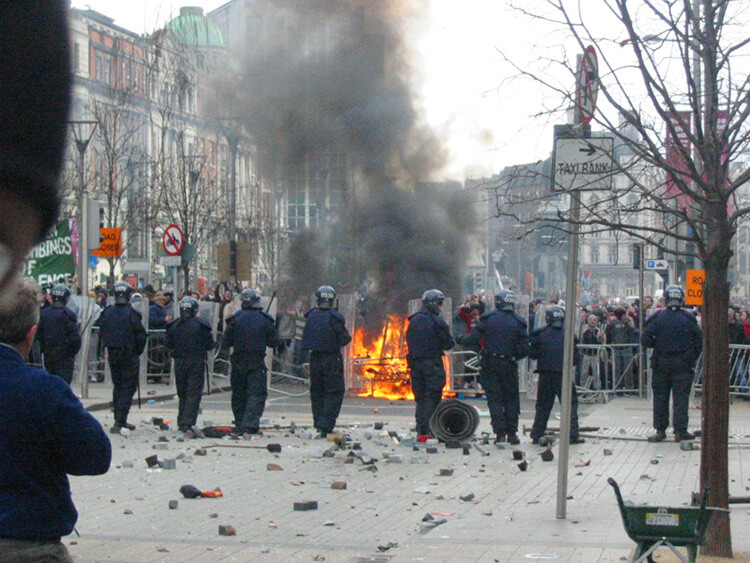
Zombie Apocalypse
Now, think about a zombie pandemic that has absolutely devastated society. Any semblance of government has collapsed. Armed tribes are all that remains. You’re on your way to your bug out location by foot with nothing but what is on your back and in your hands. You’re fortunate enough to have a scanner with the Close Call feature with you.
As you’re walking through the woods with the Close Call feature running, you pick up a signal. You can see on the scanner’s screen that the frequency is an FRS frequency. You know that FRS frequencies maybe have a max range of a mile. That means you’re dangerously close to potential trouble.
You can then adjust your route accordingly to where you’re no longer picking up FRS frequencies with Close Call.
Lost Person
You’re leading a youth group on a hiking trip. All the kids have their own FRS radios. But then one of the kids gets lost. You know he’s likely making regular transmissions with his FRS radio, but you also know this kid is a bit of a knucklehead. He never really learned how to use the FRS radio, and has probably jacked up the settings.
A scanner with Close Call running on it would automatically alert you when it picked up a signal the kid was broadcasting on. You wouldn’t have to worry about your FRS radio not being set to the right frequency to pick up the kid’s broadcast.
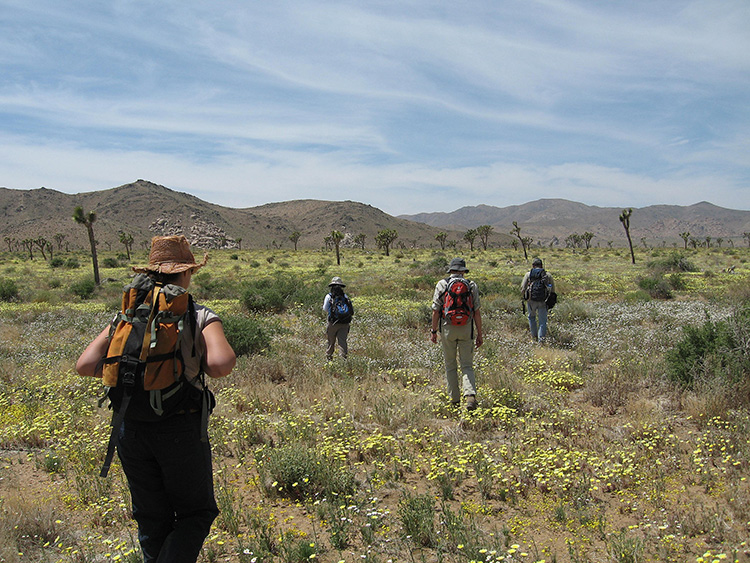
As a result, the Close Call feature could assist your efforts to save that kid’s life.
These are all just a few of the instances in which Close Call could come into handy.
How Does Close Call Work?
There’s always a baseline level of radio “noise” out there. Radio broadcasts are all around you 24/7. This is the reason you only have to turn a knob on your car radio to pick up four different country stations. The radio signals are ever-present, you just have to find them.
So, how then does Close Call distinguish between these ever-present radio signals (such as from broadcast FM music stations) and a gang of angry looters who are systematically working their way through a neighborhood?
The Close Call feature picks up broadcasts that break a specific power threshold the scanner is set at. The scanner will assume that anything which surpasses this power threshold must be close, and the integral Close Call feature will catch it as a result.
Sometimes, there will be stations operating off such an increased power level that it will trick the Close Call feature (this is common if you’re close to a broadcast FM headquarters), so there is the possibility for some misfires here. For the most part though, you’ll generally only pick up signals that have origins within several hundred feet of your scanner.
What are the Weaknesses of Close Call on a Radio?
The range of your reception also may prove to be an issue; whether you want to judge this as a weakness or a strength is up to you.
Close Call works via line-of-sight, meaning your scanner needs to “see” the broadcasting radio in order for it to pick up the transmission. This line-of-sight capability only works for a few hundred feet. That’s not an inherently bad thing, but there are some situations where you would ideally like to be able to pick something up further out than that.
This is likely just splitting hairs, but it is something to think about.
Personally, I like that Close Call only picks up signals within a few hundred feet. It tells me what’s close. If I want to pick up something further out, I can simply just set the scanner to scan.
If you do find your Close Call feature abysmally underpowered, I recommend looking at upgrading your scanner antenna. Rubber duck antennas are notoriously poor at picking up broadcasts compared to an upgraded antenna. Try with a longer, upgraded antenna and you’re liable to drastically increase the range of Close Call if you’re only picking up signals within a few dozen feet.
Are There Better Versions of Close Call Out There?
If I was buying a Uniden scanner, I would look for Close Call simply because it is inexpensive (it’s often a feature found on $100 scanners). It’s yet another tool to keep in your radio toolbox, and it is a highly practical function. Having a scanner with the integral Close Call feature isn’t any kind of encumbrance.
Whistler, a competitor of Uniden, does offer its own version of Close Call which is called Spectrum Sweeper/Signal Stalker. Both Spectrum Sweeper and Signal Stalker are the exact same thing. Whistler uses both names.
Uniden scanners can typically pick up nearby transmissions faster than can Signal Stalker. This is due to Whistler taking a bit more time to fine tune the reception to just the right frequency. Range-wise, you’re likely to get better service out of Signal Stalker though.
Are There Different Modes of the Close Call Feature?
Absolutely. There are three, and if you’re going to be running a scanner with Close Call, you should know about each of them. They are:
- Close Call
- Close Call Priority
- Close Call DND (Do Not Disturb)
Let’s analyze each in turn…
Close Call
Close Call is my favorite mode. When your scanner is set to Close Call, the sole job of the scanner is running is to find nearby broadcasts. If there’s nothing nearby, you’re not going to hear anything.
For example, there may be all kinds of transmissions out there which are happening around you, but if they’re not within a certain proximity, your scanner will not pick them up if it’s locked in Close Call mode.
Close Call Priority
Let’s say that you want to run Close Call but you also want to scan the 2m band. You want it all. Not only do you want to know where the traffic is out there, but you also want to know if anything is close to your location.
I could see this being the case if you’re moving to your bug out location in a post-nuke world or something like that. The negatives of setting your scanner to “Close Call Priority” are that every two seconds your scanner will switch over to Close Call. So, you’ll have two seconds of scanning the 2m band in its entirety, and then two seconds of Close Call.
It cycles over and over and over again.
If you pick up something in the two seconds of scanning the 2m spectrum, this can be rather annoying to have it interrupted by the Close Call feature every two seconds. Let’s say you pick up an important transmission from an angry gang of looters that goes something like this:
“Yeah, right now we’re on Fourth St, and we’re headed toward…”
And then the Close Call feature kicks in for two seconds and you miss where the looters are headed.
Do you see how that could be annoying…and dangerous?
Close Call DND (Do Not Disturb)
Overall, “Close Call DND” is probably a better version of Close Call Priority. It works in a similar manner to Close Call Priority, but if you’ve actually picked up a transmission during the two seconds the scanner is going through the 2m band, the scanner will stay with that transmission until it ceases.
That way you’ll be able to hear the looters say:
“Yeah, right now we’re on Fourth St, and we’re headed towards Apple Avenue. We’ll be there in eight minutes,” before the transmission ends and the Close Call feature kicks in. To me, this is the best of both worlds if you’re trying to monitor the band while simultaneously running Close Call.
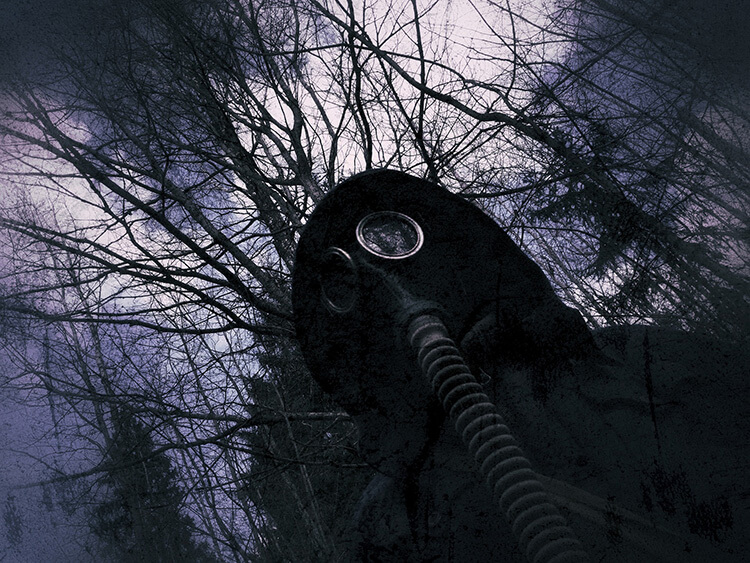
Will Close Call Memorize Where It Picked Up a Signal?
A scanner can remember the frequency the Close Call originated from, but only if you set it to do so.
This is accomplished in one of three ways: manually telling the scanner to store the frequency after the Close Call feature picks up a transmission, enabling Close Call Auto Store, or enabling Close Call Temporary Store.
Let’s look at each.
Manually Entering the Frequency
Manually entering the frequency is the most labor-intensive process here. I’ve not gotten my hands on every single model of Uniden scanner out there, so I can’t attest to the process being the same across the board. Your user manual will fill you in on how to do this; typically, hitting the ‘E’ button is involved though.
If you don’t want a bunch of Close Call frequencies hogging up your radio (let’s say you’re traveling to a new area and don’t want to lose your Close Call frequencies you normally pick up on back at home), this is an option to consider.
Close Call Auto Store
Let’s say you want Close Call to store every frequency it finds into the scanner’s memory. If this is the case, and you want to be able to access those same frequencies the next time you head out to the mountains, this is the feature you want to enable.
Every single time the Close Call Auto Store feature picks up a signal, it will store the frequency.
Close Call Temporary Store
Let’s say you’re on vacation at the beach.
This is where Close Call Temporary Store comes into play. This will store the Close Call frequencies the scanner picks up, but only until you turn the power off. Once you turn that power off, these frequencies are forgotten forever.
That can prove convenient if, say, you’re at an air show for the weekend for example. As far as I know, you can only store ten or so of these frequencies – this is consistent across the Uniden line of products.
Final Thoughts on the Close Call Feature
Close Call is an incredibly helpful feature which will help you to better gather intelligence from your environment and locale post-disaster. Sure, you could just set your scanner to scan through the entire 2m band (or another band, of course), but you won’t have as good of an idea as to the proximity of the signal (unless you visually see it’s a FRS, GMRS, or MURS signal). So, yes, I do believe that this is a worthwhile feature to possess on your scanner for the reasons outlined in this article.
What are your thoughts on using the Close Call feature post-SHTF? What are your experiences with Close Call? Let us know in the comments below!
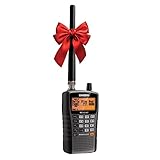
1 comment
I’ve had scanners since Radio Shack days. I always found them handy for prepping emergencies: 9/11; hurricanes & snowstorms; and local emergencies. However, with the move to digital from analog my RS scanner has become a paperweight. I also own a Uniden Home Patrol (1) which with the trunking and encryption has also become somewhat, though not completely obsolete. I’m tempted to buy a Home Patrol (2) but wasn’t sure if it is blocked by trunking and encryption as well.
I’ve also since 2017 gotten my HAM ticket, (general) and largely use this in emergencies but it is not as fully adequate as a good scanner as in the old days.